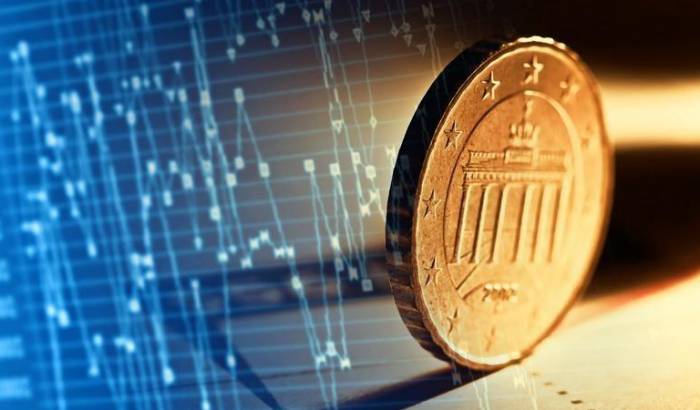In 1985, Japan and the United States, leading Western countries, reached an agreement, which was followed by the appreciation of the yen and an increasingly large economic bubble. This is the historically famous Plaza Accord.
A few years later, the bubble burst, and Japan's stock and real estate markets experienced a significant drop, with Americans successfully reaping a bountiful harvest.
After losing its national fortune for 40 years, Japan now seems to be facing a turning point. With the new Bank of Japan governor taking office, there might be a counterattack on the US dollar.
What will the ultimate outcome be?
01, 9 trillion yen for market rescue
Unlike other countries, for so many years, regardless of how the global economic situation has changed, Japan has maintained the lowest interest rates and loose monetary policy. Even when the United States significantly raised interest rates, Japan did not make any adjustments.
This has resulted in the United States having much higher interest rates than Japan, which also led to a substantial depreciation of the yen for most of 2022. However, even so, Japan would rather spend 9 trillion yen to rescue the market than raise interest rates.
Why is that?
The reason lies in the fact that Japan has not experienced inflation for over 30 years. Now that there is finally a chance, they want to increase inflation, which could finally pull the Japanese economy out of deflation. This is the most fundamental goal of the Bank of Japan, so they would rather see the yen depreciate and use money to rescue the market.
02, Waiting for inflationIt can be said that Japan has always been waiting for an opportunity, but before that opportunity arises, it is essential to ensure that Japan's economy emerges from deflation. Therefore, for a long period, the Bank of Japan's monetary policy has been at odds with that of the United States. While the U.S. sought to tighten monetary policy, Japan has consistently pursued monetary easing.
In fact, Japan's inflation is currently on the rise, recently surpassing 4%. This level of inflation may not be too high in Western countries, but it is somewhat exaggerated in Japan, considering that for many years, Japan's inflation rate has struggled to reach 2%, and now it has exceeded 4%.

Surprisingly, despite this, Japan has not followed the U.S.'s lead in raising interest rates. Instead, under immense pressure, it continues to inject a substantial amount of funds into the market.
03, Prices are Rising
Japan once conducted a survey among its citizens, and the majority felt that the country's prices were continuously deteriorating, expressing great dissatisfaction with the current price and wage levels. Nearly half of the respondents indicated that the most pressing issue to be addressed was the rising prices.
Additionally, sixty percent of the people believe that the price increase is due to Japan's financial crisis and the sluggish economy. In this survey, the issue of prices has become the most significant concern in Japan's economic development.
However, even in the face of this, Japan has only responded in two ways. One is by raising wages; in the "Shunto" wage negotiations in March of this year, major companies in Japan were required to increase wages by 2.9%, or even up to 3%.Another approach is to give money directly. Japan is preparing to provide direct financial assistance to low-income households to help them cope with the rising prices, with a determined subsidy amount of 30,000 yen per person. In addition, families with children will receive an extra 50,000 yen.
The result of this action is singular: the amount of currency in the market increases, leading to a more severe inflation.
But perhaps this is the very goal of the Bank of Japan.
04, Counterattacking the US Dollar
Once inflation reaches the Bank of Japan's target, the next step will be for Japan to start controlling inflation, stabilizing it within a 2% range.
This means that the Bank of Japan will enter a normalization of monetary policy, ending the ultra-low interest rates that have been in place for the past several decades. If the Bank of Japan raises interest rates and coincides with the US Federal Reserve lowering rates, then the yen will appreciate rapidly.
Goldman Sachs believes that the yen's exchange rate could quickly rise from the current level of around 140 to break through 90, or even reach 85.
Deutsche Bank also believes that the yen is currently at least 30% undervalued compared to its fair value, and once interest rate hikes resume, the yen will appreciate while the US dollar may take a significant hit.
At that time, it won't just be the US dollar that gets counterattacked; US Treasury bonds will also be cornered, and one can anticipate an even more fierce wave of US Treasury bond sell-offs on the horizon.